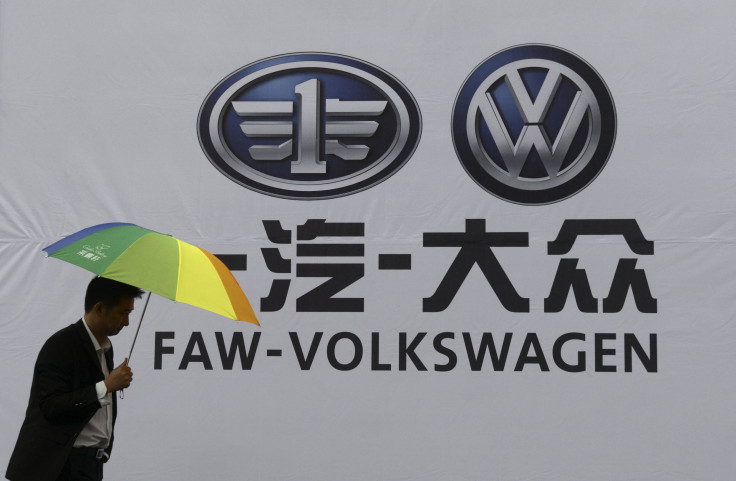China Car Industry Rumor: Dongfeng, FAW Trading Halt, Chairman Shift Fuel Speculation Of Merger Of Top Chinese Automakers

Top Chinese automakers Dongfeng and FAW could merge if rumors circulating in China are true. China Daily reported Tuesday that news of an executive shift sent shares of both companies soaring to the 10 percent daily limit, which then initiated a temporary trading halt of the companies’ shares.
A merger between listed subsidiaries of Dongfeng and FAW, China’s second- and third-largest automotive companies, would bring together a complex web of joint ventures involving major global automakers, including Honda, Nissan, Audi and General Motors. China’s ruling Communists are seeking new mergers and acquisitions of state-owned companies in an effort to make them more globally competitive.
Reuters said Tuesday that Dongfeng Automobile’s parent company, Dongfeng Motor Corp., halted trading of its listed subsidiary to check with Chinese authorities about the rumor. Both parent companies are state-owned. FAW said the trading halt was an effort to determine if investors were trading on insider information.
Traders simply might have been reacting impulsively amid a spectacular stock market boom, hoping that news of an executive shift between the two companies was the first step toward announcing a merger. The Financial Times said Dongfeng Motor Group, the Hong Kong-listed subsidiary, was taking the rumors “seriously” but that it had received no word from government authorities.
Dongfeng Motor confirmed on Tuesday recent media reports that its chairman, Xu Ping, will soon become FAW Group’s new chairman. Last month, the Communist Party’s disciplinary committee placed FAW Group’s previous chairman, Xu Jianyi, under investigation for unspecified corruption charges. Dongfeng’s empty chairman seat reportedly would be filled by Zhu Yanfeng, a state bureaucrat and a veteran of Chinese auto industry deal-making.
Xu Ping has been with Dongfeng since 1982 and has been chairman since 2005. His shift to FAW Group would mean Dongfeng would lose a longtime company leader and receive a local Communist Party politician. Whether this means Xu and Zhu are about to oversee a complicated merger of two major Chinese auto companies is uncertain.
China’s auto industry has for decades suffered from a glut of manufacturers churning out cars Chinese consumers avoid if they can afford it. Decades of government efforts to consolidate the industry have largely failed as these local manufacturers are seen as a way for politicians to boost local output and jobs at the cost of profitability and car quality.
Wuhan-based Dongfeng Motor and Changchun-based FAW Group are two of China’s “top four” car companies; a merger of their larger automaking businesses would consolidate two large and diverse operations. Dongfeng has a network of joint ventures making cars for the Chinese market with Honda, Nissan, Renault, Peugeot Citroën and Kia. FAW Group subsidiary FAW Car Co. makes cars with Audi, General Motors, Mazda, Toyota and Volkswagen.
China's top automaker is SAIC Motor, which produces cars under its own brands as well as through joint ventures with Volkswagen and General Motors.
© Copyright IBTimes 2024. All rights reserved.












